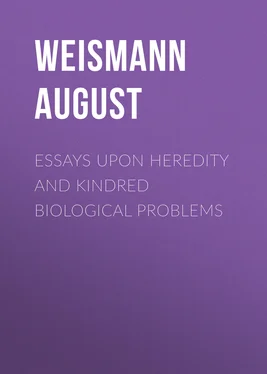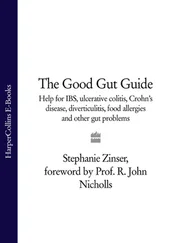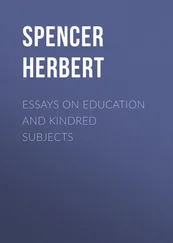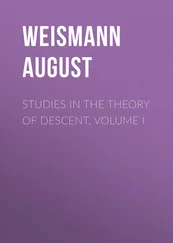August Weismann - Essays Upon Heredity and Kindred Biological Problems
Здесь есть возможность читать онлайн «August Weismann - Essays Upon Heredity and Kindred Biological Problems» — ознакомительный отрывок электронной книги совершенно бесплатно, а после прочтения отрывка купить полную версию. В некоторых случаях можно слушать аудио, скачать через торрент в формате fb2 и присутствует краткое содержание. Жанр: foreign_antique, Биология, на английском языке. Описание произведения, (предисловие) а так же отзывы посетителей доступны на портале библиотеки ЛибКат.
- Название:Essays Upon Heredity and Kindred Biological Problems
- Автор:
- Жанр:
- Год:неизвестен
- ISBN:нет данных
- Рейтинг книги:5 / 5. Голосов: 1
-
Избранное:Добавить в избранное
- Отзывы:
-
Ваша оценка:
- 100
- 1
- 2
- 3
- 4
- 5
Essays Upon Heredity and Kindred Biological Problems: краткое содержание, описание и аннотация
Предлагаем к чтению аннотацию, описание, краткое содержание или предисловие (зависит от того, что написал сам автор книги «Essays Upon Heredity and Kindred Biological Problems»). Если вы не нашли необходимую информацию о книге — напишите в комментариях, мы постараемся отыскать её.
Essays Upon Heredity and Kindred Biological Problems — читать онлайн ознакомительный отрывок
Ниже представлен текст книги, разбитый по страницам. Система сохранения места последней прочитанной страницы, позволяет с удобством читать онлайн бесплатно книгу «Essays Upon Heredity and Kindred Biological Problems», без необходимости каждый раз заново искать на чём Вы остановились. Поставьте закладку, и сможете в любой момент перейти на страницу, на которой закончили чтение.
Интервал:
Закладка:
This statement leads us to seek the origin of death, not in the waste of single cells, but in the limitation of their powers of reproduction. Death takes place because a worn-out tissue cannot for ever renew itself, and because a capacity for increase by means of cell-division is not everlasting, but finite [See Note 8]. This does not however imply that the immediate cause of death lies in the imperfect renewal of cells, for death would in all cases occur long before the reproductive power of the cells had been completely exhausted. Functional disturbances will appear as soon as the rate at which the worn-out cells are renewed becomes slow and insufficient.
But it must not be forgotten that death is not always preceded by senility, or a period of old age. For instance, in many of the lower animals death immediately follows the most important deed of the organism, viz. reproduction. Many Lepidoptera, all may-flies, and many other insects die of exhaustion immediately after depositing their eggs. Men have been known to die from the shock of a strong passion. Sulla is said to have died as the result of rage, whilst Leo X succumbed to an excess of joy. Here the psychical shock caused too intense an excitement of the nervous system. In the same manner the exercise of intense effort may also produce a similarly fatal excitement in the above-mentioned insects. At any rate it is certain that when, for some reason, this effort is not made, the insect lives for a somewhat longer period.
It is clear that in such animals as insects we can only speak figuratively of normal death, if we mean by this an end which is not due to accident. In these animals an accidental end is the rule, and is therefore, strictly speaking, normal [See Note 9].
Assuming the truth of the above-mentioned hypothesis as to the causes of normal death, it follows that the number of cell-generations which can proceed from the egg-cell is fixed for every species, at least within certain limits; and this number of cell-generations, if attained, corresponds to the maximum duration of life in the individuals of the species concerned. Shortening of life in any species must depend upon a decrease in the number of successive cell-generations, while conversely, the lengthening of life depends upon an increase in the number of cell-generations over those which were previously possible.
Such changes actually take place in plants. When an annual plant becomes perennial, the change—one in every way possible—can only happen by the production of new shoots, i. e. by an increase in the number of cell-generations. The process is not so obvious in animals, because in them the formation of young cells does not lead to the production of new and visible parts, for the new material is merely deposited in the place of that which is worn out and disappears. Among plants, on the other hand, the old material persists, its cells become lignified, and it is built over by new cells which assume the functions of life.
It is certainly true that the question as to the necessity of death in general does not seem much clearer from this point of view than from the purely physiological one. This is because we do not know why a cell must divide 10,000 or 100,000 times and then suddenly stop. It must be admitted that we can see no reason why the power of cell-multiplication should not be unlimited, and why the organism should not therefore be endowed with everlasting life. In the same manner, from a physiological point of view, we might admit that we can see no reason why the functions of the organism should ever cease.
It is only from the point of view of utility that we can understand the necessity of death. The same arguments which were employed to explain the necessity for as short a life as possible, will with but slight modification serve to explain the common necessity of death 4.
Let us imagine that one of the higher animals became immortal; it then becomes perfectly obvious that it would cease to be of value to the species to which it belonged. Suppose that such an immortal individual could escape all fatal accidents, through infinite time,—a supposition which is of course hardly conceivable. The individual would nevertheless be unable to avoid, from time to time, slight injuries to one or another part of its body. The injured parts could not regain their former integrity, and thus the longer the individual lived, the more defective and crippled it would become, and the less perfectly would it fulfil the purpose of its species. Individuals are injured by the operation of external forces, and for this reason alone it is necessary that new and perfect individuals should continually arise and take their place, and this necessity would remain even if the individuals possessed the power of living eternally.
From this follows, on the one hand, the necessity of reproduction, and, on the other, the utility of death. Worn-out individuals are not only valueless to the species, but they are even harmful, for they take the place of those which are sound. Hence by the operation of natural selection, the life of our hypothetically immortal individual would be shortened by the amount which was useless to the species. It would be reduced to a length which would afford the most favourable conditions for the existence of as large a number as possible of vigorous individuals, at the same time.
If by these considerations death is shown to be a beneficial occurrence, it by no means follows that it is to be solely accounted for on grounds of utility. Death might also depend upon causes which lie in the nature of life itself. The floating of ice upon water seems to us to be a useful arrangement, although the fact that it does float depends upon its molecular structure and not upon the fact that its doing so is of any advantage to us. In like manner the necessity of death has been hitherto explained as due to causes which are inherent in organic nature, and not to the fact that it may be advantageous.
I do not however believe in the validity of this explanation; I consider that death is not a primary necessity, but that it has been secondarily acquired as an adaptation. I believe that life is endowed with a fixed duration, not because it is contrary to its nature to be unlimited, but because the unlimited existence of individuals would be a luxury without any corresponding advantage. The above-mentioned hypothesis upon the origin and necessity of death leads me to believe that the organism did not finally cease to renew the worn-out cell material because the nature of the cells did not permit them to multiply indefinitely, but because the power of multiplying indefinitely was lost when it ceased to be of use.
I consider that this view, if not exactly proved, can at any rate be rendered extremely probable.
It is useless to object that man (or any of the higher animals) dies from the physical necessity of his nature, just as the specific gravity of ice results from its physical nature. I am quite ready to admit that this is the case. John Hunter, supported by his experiments on anabiosis , hoped to prolong the life of man indefinitely by alternate freezing and thawing; and the Veronese Colonel Aless. Guaguino made his contemporaries believe that a race of men existed in Russia, of which the individuals died regularly every year on the 27th of November, and returned to life on the 24th of the following April. There cannot however be the least doubt, that the higher organisms, as they are now constructed, contain within themselves the germs of death. The question however arises as to how this has come to pass; and I reply that death is to be looked upon as an occurrence which is advantageous to the species as a concession to the outer conditions of life, and not as an absolute necessity, essentially inherent in life itself.
Death, that is the end of life, is by no means, as is usually assumed, an attribute of all organisms. An immense number of low organisms do not die, although they are easily destroyed, being killed by heat, poisons, &c. As long, however, as those conditions which are necessary for their life are fulfilled, they continue to live, and they thus carry the potentiality of unending life in themselves. I am speaking not only of the Amoebae and the low unicellular Algae, but also of far more highly organized unicellular animals, such as the Infusoria.
Читать дальшеИнтервал:
Закладка:
Похожие книги на «Essays Upon Heredity and Kindred Biological Problems»
Представляем Вашему вниманию похожие книги на «Essays Upon Heredity and Kindred Biological Problems» списком для выбора. Мы отобрали схожую по названию и смыслу литературу в надежде предоставить читателям больше вариантов отыскать новые, интересные, ещё непрочитанные произведения.
Обсуждение, отзывы о книге «Essays Upon Heredity and Kindred Biological Problems» и просто собственные мнения читателей. Оставьте ваши комментарии, напишите, что Вы думаете о произведении, его смысле или главных героях. Укажите что конкретно понравилось, а что нет, и почему Вы так считаете.












